
The Centers for Disease Control and Prevention (CDC) is the national public health agency of the United States. It is a United States federal agency, under the Department of Health and Human Services, and is headquartered in Atlanta, Georgia.

The United Nations Foundation is a charitable organization headquartered in Washington, DC, that supports the United Nations and its activities. It was established in 1998 with a $1 billion gift to the United Nations by philanthropist Ted Turner, who believed the UN was crucial for addressing the world's problems. Originally primarily a grantmaker, the UN Foundation has evolved into a strategic partner to the UN, mobilizing support to advance the Sustainable Development Goals (SDGs), and help the UN address issues such as climate change, global health, gender equality, human rights, data and technology, peace, and humanitarian responses. The UN Foundation's main work occurs through building public-private partnerships, communities, initiatives, campaigns, and alliances to broaden support for the UN and solve global problems. The UN Foundation has helped build awareness and advocate for action on, among others, antimicrobial resistance, regional action on climate change, local implementation of the SDGs, as well as global campaigns such as Nothing But Nets against malaria, the Measles & Rubella Initiative, the Clean Cooking Alliance, Girl Up, Shot@Life, and the Digital Impact Alliance, among others. In March 2020, the UN Foundation was also a key founder of the COVID-19 Solidarity Response Fund on behalf of the World Health Organization (WHO), helping to raise over $200 million USD within the first six weeks to support the global response to the COVID-19 pandemic.
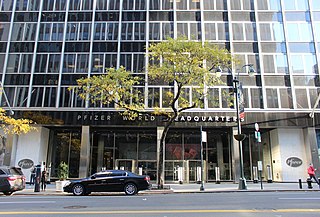
Pfizer Inc. is an American multinational pharmaceutical and biotechnology corporation headquartered on 42nd Street in Manhattan, New York City. The company was established in 1849 in New York by two German entrepreneurs, Charles Pfizer (1824–1906) and his cousin Charles F. Erhart (1821–1891).
Health Canada is the department of the Government of Canada responsible for national health policy. The department itself is also responsible for numerous federal health-related agencies, including the Canadian Food Inspection Agency (CFIA) and the Public Health Agency of Canada (PHAC), among others. These organizations help to ensure compliance with federal law in a variety of healthcare, agricultural, and pharmaceutical activities. This responsibility also involves extensive collaboration with various other federal- and provincial-level organizations in order to ensure the safety of food, health, and pharmaceutical products—including the regulation of health research and pharmaceutical manufacturing/testing facilities.

The Advertising Council, commonly known as the Ad Council, is an American nonprofit organization that produces, distributes, and promotes public service announcements on behalf of various sponsors, including nonprofit organizations, non-governmental organizations and agencies of the United States government.
BGC Canada is a national, nonprofit organization that supports local Boys and Girls Clubs with programs for physical activity, healthy living, learning, job training, leadership, and creative expression. With locations in small towns and large cities, as well as rural and Indigenous communities, Boys and Girls Clubs provide services to young people during critical out-of-school hours.
A vaccine adverse event (VAE), sometimes referred to as a vaccine injury, is an adverse event caused by vaccination. The World Health Organization (WHO) knows VAEs as Adverse Events Following Immunization (AEFI).
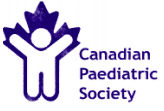
The Canadian Paediatric Society (CPS) is a national association of paediatricians.
A vaccination policy is a health policy adopted in order to prevent the spread of infectious disease. These policies are generally put into place by State or local governments, but may also be set by private facilities, such as workplaces or schools. Many policies have been developed and implemented since vaccines were first made widely available.
The Association for Canadian Studies is a non-profit organization, founded at Queen's University in Kingston, Ontario, in 1973. Its activities are conducted in both official languages of Canada. Through the organization, its individual and institutional members initiate and support research and teaching in Canadian studies, particularly from interdisciplinary and multidisciplinary perspectives. The organizational membership is also concerned with the promotion of Canadian studies generally, as well as the specific training of students in Canadian studies.
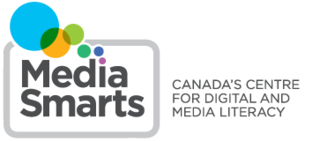
MediaSmarts is a Canadian non-profit organization based in Ottawa, Ontario, that focuses on digital and media literacy programs and resources. In particular, the organization promotes critical thinking via educational resources and analyzes the content of various types of mass media.
The Canadian Public Health Association (CPHA) is a national non-profit organization dedicated to public health.
Vaccine Choice Canada (VCC) is Canada's main anti-vaccination group. It was founded in the 1980s under the name Vaccination Risk Awareness Network (VRAN) and adopted its current name in 2014. The group has been contributing to vaccine hesitancy in Canada, encouraging citizens to forgo immunization and legislators to support anti-vaccine regulations and legislation.
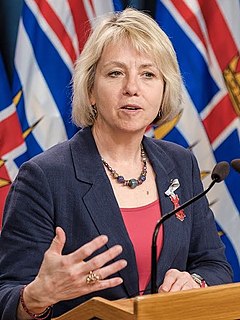
Bonnie J. Fraser Henry is a Canadian physician who is the Provincial Health Officer for British Columbia, the first woman in this position. Henry is also a clinical associate professor at the University of British Columbia. She was a family doctor and is a specialist in public health and preventive medicine.
Allison Joan McGeer is a Canadian infectious disease specialist in the Sinai Health System, and a professor in the Department of Laboratory Medicine and Pathobiology at the University of Toronto. She also appointed at the Dalla Lana School of Public Health and a Senior Clinician Scientist at the Lunenfeld-Tanenbaum Research Institute, and is a partner of the National Collaborating Centre for Infectious Diseases. McGeer has led investigations into the severe acute respiratory syndrome outbreak in Toronto and worked alongside Donald Low. During the COVID-19 pandemic, McGeer has studied how SARS-CoV-2 survives in the air and has served on several provincial committees advising aspects of the Government of Ontario's pandemic response.
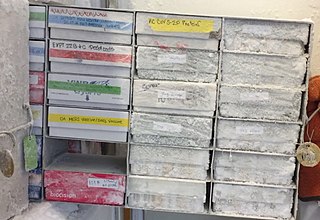
SARS-CoV-2, the virus that causes COVID-19, was isolated in late 2019. Its genetic sequence was published on 11 January 2020, triggering the urgent international response to prepare for an outbreak and hasten development of a preventive COVID-19 vaccine. Since 2020, vaccine development has been expedited via unprecedented collaboration in the multinational pharmaceutical industry and between governments. By June 2020, tens of billions of dollars were invested by corporations, governments, international health organizations, and university research groups to develop dozens of vaccine candidates and prepare for global vaccination programs to immunize against COVID‑19 infection. According to the Coalition for Epidemic Preparedness Innovations (CEPI), the geographic distribution of COVID‑19 vaccine development shows North American entities to have about 40% of the activity, compared to 30% in Asia and Australia, 26% in Europe, and a few projects in South America and Africa.
The National Advisory Committee on Immunization is an advisory body that provides the Government of Canada with medical and scientific advice relating to human immunization.
Dr. Shelley Deeks, MD, MHSc, FRCPC, FFAFPM, is a Canadian public health expert who is the chair of the National Advisory Committee on Immunization. Her advertised "specialities include communicable disease control, outbreak investigations, vaccine safety, epidemiology and program evaluation." She is a fellow of the Royal College of Physicians of Canada and the Australian Faculty of Public Health Medicine. Deeks was the executive lead in Ontario's COVID-19 pandemic response in 2020 in her role at Public Health Ontario.

Caroline Quach-Thanh is a Canadian pediatric microbiologist, epidemiologist and infectious diseases specialist. She is a professor in the Université de Montréal Faculty of Medicine and Medical Lead in the Infection Prevention and Control Unit at CHU Sainte-Justine. She served as the Chair of the National Advisory Committee on Immunization (NACI) before and during the COVID-19 pandemic, and oversaw the approval process of COVID-19 vaccines in Canada.

19 to Zero is a not-for-profit science communications initiative based in Calgary, Alberta. Hosted at the University of Calgary, the public–private partnership is made up of around 500 members including public health specialists, academics, behavioural psychologists, marketers and multimedia creators. Its purpose is to increase confidence in vaccines for COVID-19 and other diseases by tackling vaccine hesitancy. The group publishes materials on its website and through partner organizations, including videos, billboards, presentations, brochures and in-person events.










